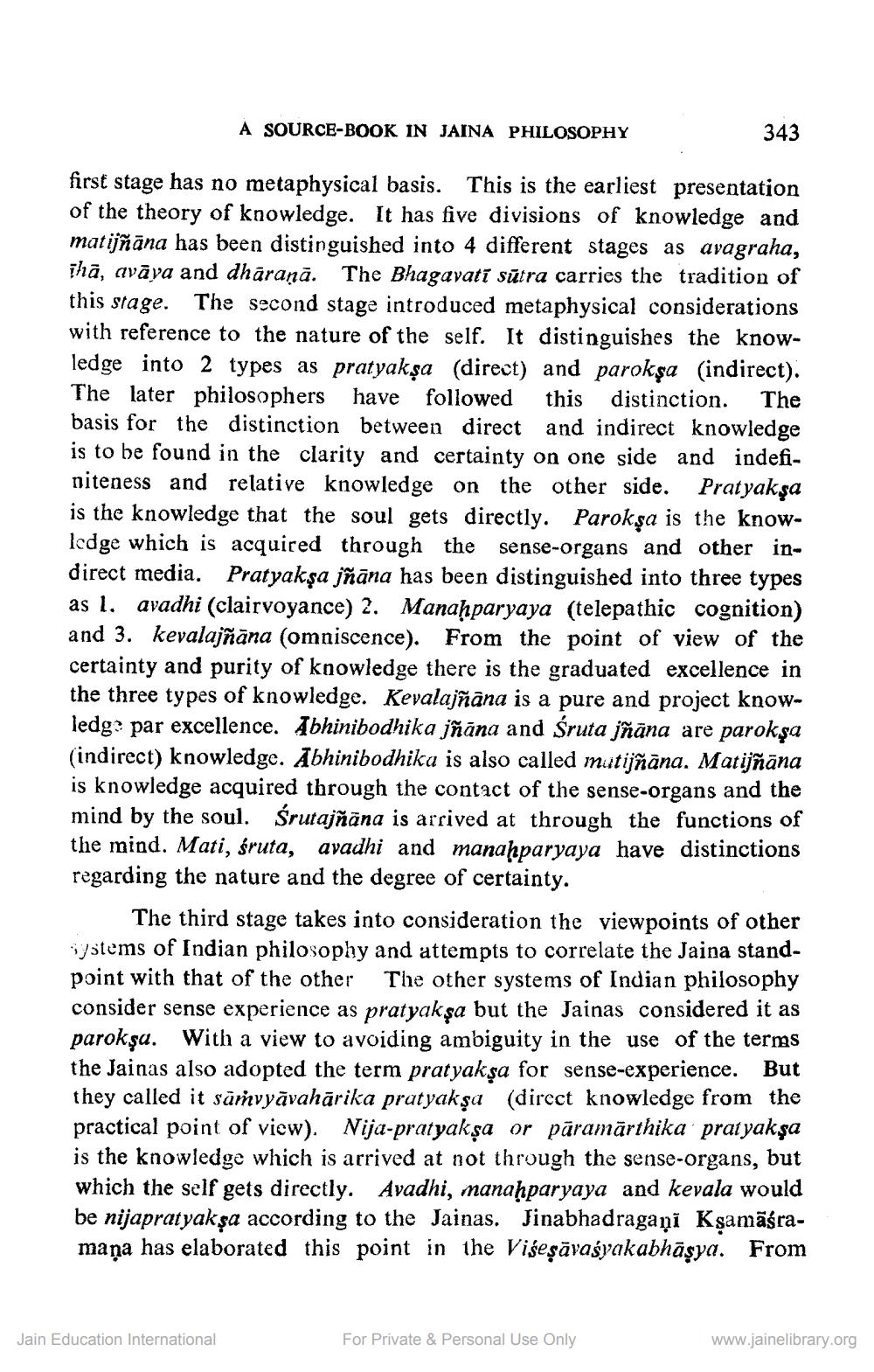________________
A SOURCE-BOOK IN JAINA PHILOSOPHY
first stage has no metaphysical basis. This is the earliest presentation of the theory of knowledge. It has five divisions of knowledge and matijñāna has been distinguished into 4 different stages as avagraha, ihā, avaya and dharaṇā. The Bhagavati sutra carries the tradition of this stage. The second stage introduced metaphysical considerations with reference to the nature of the self. It distinguishes the knowledge into 2 types as pratyakṣa (direct) and paroksa (indirect). The later philosophers have followed this distinction. The basis for the distinction between direct and indirect knowledge is to be found in the clarity and certainty on one side and indefiniteness and relative knowledge on the other side. Pratyakşa is the knowledge that the soul gets directly. Parokşa is the knowledge which is acquired through the sense-organs and other indirect media. Pratyakṣa jñāna has been distinguished into three types as 1. avadhi (clairvoyance) 2. Manaḥparyaya (telepathic cognition) and 3. kevalajñāna (omniscence). From the point of view of the certainty and purity of knowledge there is the graduated excellence in the three types of knowledge. Kevalajñana is a pure and project knowledge par excellence. Abhinibodhika jñāna and Śruta jñāna are parokşa (indirect) knowledge. Abhinibodhika is also called mutijñāna. Matijñāna is knowledge acquired through the contact of the sense-organs and the mind by the soul. Śrutajñāna is arrived at through the functions of the mind. Mati, śruta, avadhi and manaḥparyaya have distinctions regarding the nature and the degree of certainty.
Jain Education International
343
The third stage takes into consideration the viewpoints of other systems of Indian philosophy and attempts to correlate the Jaina standpoint with that of the other The other systems of Indian philosophy consider sense experience as pratyakşa but the Jainas considered it as parokşa. With a view to avoiding ambiguity in the use of the terms the Jainas also adopted the term pratyakṣa for sense-experience. But they called it saṁvyāvahārika pratyakṣa (direct knowledge from the practical point of view). Nija-pratyakṣa or pāramārthika pratyakşa is the knowledge which is arrived at not through the sense-organs, but which the self gets directly. Avadhi, manaḥparyaya and kevala would be nijapratyakṣa according to the Jainas. Jinabhadragaṇī Kṣamāśramaņa has elaborated this point in the Viseṣāvasyakabhāṣya. From
For Private & Personal Use Only
www.jainelibrary.org




